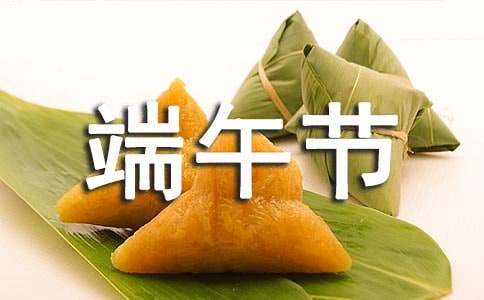端午节的故事介绍
农历五月初五为端午节,又称端阳节、午日节、五月节、艾节、端五、重午、午日、夏节。今天就为大家介绍端午节的故事,仅供参考!

端午节的故事一、源于纪念屈原
据《史记》“屈原贾生列传”记载,屈原,是春秋时期楚怀王的大臣。他倡导举贤授能,富国强兵,力主联齐抗秦,遭到贵族子兰等人的强烈反对,屈原遭馋去职,被赶出都城,流放到沅、湘流域。他在流放中,写下了忧国忧民的《离骚》、《天问》、《九歌》等不朽诗篇,独具风貌,影响深远(因而,端午节也称诗人节)。公元前278年,秦军攻破楚国京都。屈原眼看自己的祖国被侵略,心如刀割,但是始终不忍舍弃自己的`祖国,于五月五日,在写下了绝笔作《怀沙》之后,抱石投汨罗江身死,以自己的生命谱写了一曲壮丽的爱国主义乐章。
传说屈原死后,楚国百姓哀痛异常,纷纷涌到汨罗江边去凭吊屈原。渔夫们划起船只,在江上来回打捞他的真身。有位渔夫拿出为屈原准备的饭团、鸡蛋等食物,“扑通、扑通”地丢进江里,说是让鱼龙虾蟹吃饱了,就不会去咬屈大夫的身体了。人们见后纷纷仿效。一位老医师则拿来一坛雄黄酒倒进江里,说是要药晕蛟龙水兽,以免伤害屈大夫。后来为怕饭团为蛟龙所食,人们想出用楝树叶包饭,外缠彩丝,发展成棕子。
以后,在每年的五月初五,就有了龙舟竞渡、吃粽子、喝雄黄酒的风俗;以此来纪念爱国诗人屈原。
端午节的故事二、源于纪念伍子胥
端午节的第二个传说,在江浙一带流传很广,是纪念春秋时期(公元前770--前476年)的伍子胥。伍子胥名员,楚国人,父兄均为楚王所杀,后来子胥弃暗投明,奔向吴国,助吴伐楚,五战而入楚都郢城。当时楚平王已死,子胥掘墓鞭尸三百,以报杀父兄之仇。吴王阖庐死后,其子夫差继位,吴军士气高昂,百战百胜,越国大败,越王勾践请和,夫差许之。子胥建议,应彻底消灭越国,夫差不听,吴国大宰,受越国贿赂,谗言陷害子胥,夫差信之,赐子胥宝剑,子胥以此死。子胥本为忠良,视死如归,在死前对邻舍人说:“我死后,将我眼睛挖出悬挂在吴京之东门上,以看越国军队入城灭吴”,便自刎而死,夫差闻言大怒,令取子胥之尸体装在皮革里于五月五日投入大江,因此相传端午节亦为纪念伍子胥之日。
端午节的故事三、源于纪念孝女曹娥
端午节的第三个传说,是为纪念东汉(公元23--220年)孝女曹娥救父投江。曹娥是东汉上虞人,父亲溺于江中,数日不见尸体,当时孝女曹娥年仅十四岁,昼夜沿江号哭。过了十七天,在五月五日也投江,五日后抱出父尸。就此传为神话,继而相传至县府知事,令度尚为之立碑,让他的弟子邯郸淳作诔辞颂扬。
孝女曹娥之墓,在今浙江绍兴,后传曹娥碑为晋王义所书。后人为纪念曹娥的孝节,在曹娥投江之处兴建曹娥庙,她所居住的村镇改名为曹娥镇,曹娥殉父之处定名为曹娥江。
端午节的故事四、源于古越民族图腾祭
近代大量出土文物和考古研究证实:长江中下游广大地区,在新石器时代,有一种几何印纹陶为特征的文化遗存。该遗存的族属,据专家推断是一个崇拜龙的图腾的部族----史称百越族。出土陶器上的纹饰和历史传说示明,他们有断发纹身的习俗,生活于水乡,自比是龙的子孙。其生产工具,大量的还是石器,也有铲、凿等小件的青铜器。作为生活用品的坛坛罐罐中,烧煮食物的印纹陶鼎是他们所特有的,是他们族群的标志之一。直到秦汉时代尚有百越人,端午节就是他们创立用于祭祖的节日。在数千年的历史发展中,大部分百越人已经融合到汉族中去了,其余部分则演变为南方许多少数民族,因此,端午节成了全中华民族的节日。
附:关于端午节英语故事
Our people to commemorate the great patriotic poet Qu Yuan, an annual Lunar New Year Dragon Boat Festival in May every fifth day, the custom spread to the DPRK, Japan, Myanmar, Vietnam, Malaysia, Indonesia and other countries.
Qu Yuan, lived in two thousand three hundred years ago in the Warring States era, a young man to cherish lofty aspirations, demonstrated a remarkable talent was grandson of the trust, the official "left only", according to Sima Qian's "Shi Ji" recorded in his "affairs of state and Wang proposed plans," outside "then the event guests to meet the princes," is in charge of internal affairs, foreign affairs minister.
This is the Warring States Period of Qi, Chu, Yan, Han, Zhao, Wei, Qin Qixiong hegemony of chaos, Qin Shang Yang after the appointment of increasingly powerful, often launch attacks against the six countries. Chu and Qi were only able to compete with them. In view of the situation at that time, Qu Yuan advocated improved internal and external advocates Qi Gang Qin, and thus against the interests of the upper ruling class, who was the grandson of bribery under the favorite concubine Qin Zheng Xiu, Shangguan doctor, Yoshitada sub pepper exclusion and framed.
Listen to calumny huai confused, alienated Qu Yuan, he was exiled to the north of Han, the result was the grandson of a prisoner for three years when Qin cheated, died in a foreign country.
Qu Yuan, see all of this, extreme anger. He firmly opposed to the state of Qin humiliating surrender, which was the persecution of political opponents are more serious. The new reign of King Xiang is more stupid than his father, banished Qu Yuan to the Chinese and the North than the more remote areas.
In the long life of exile, Qu Yuan did not. He insisted that his political views, and never follow the crowd. Picked up a pen writing a love for their motherland, to denounce "N group" harm the country for future generations to leave the immortal poems.
Qu Yuan, a Chinese literary history of the greatest and most distinguished Romantic poet, called him after the work is "Songs of the South." Masterpiece is the "Lament", which is the longest of Qu Yuan a lyric poem, a total of three hundred seventy-three, two thousand seven hundred and seventy seven words of the poem describes the poet to practice their own political views are being attack and persecution, must express their inner pain, faithful to the people and the feelings of the motherland.
Qu Yuan in the long journey of exile, the spirit and life suffered devastation and suffering is imagined. One day he is Singing River, encountered a fishing hermit, hermit to see him looking haggard haggard, advised him "Do not rigidly stick to", "easy-going number", and the bigwigs were in cahoots. Yuan said: "I would rather go to Xiang River flows buried in the belly of the fish; security can Haohao of white, and almost dust mask secular?" Year seven to eight tests, was the capital of Chu Chi broken, the spirit of the poet has been a great blow, seeing the difficulty of breaking the country, but can not use his power, he was so frightened that in extreme disappointment and pain, the poet came to the east of the Yangtze River Miluo, bouldering and drowned. He died about sixty years old, it is the Lunar May tenth.
Two thousand years of age, which in the course of history can not be considered just a moment, but despite the drain, dusk to dawn-to, the image of the poet Qu Yuan, but still remain in people's heart. Today, Dragon Boat Festival every day, people are still in the river in the dragon boat racing, the dumplings, multicolored silk tie to commemorate the great poet Qu Yuan, see the works of the poet and the spirit is eternal it!
【端午节的故事介绍】相关文章:
端午节的名人故事12-13
端午节的故事传说08-08
端午节传说的故事08-08
有关端午节的故事03-28
端午节屈原的故事08-08
关于端午节的故事08-08
端午节的来历的故事08-08
端午节挂葫芦的故事08-09
搜集有关端午节的故事08-09
端午节插艾草的故事08-12